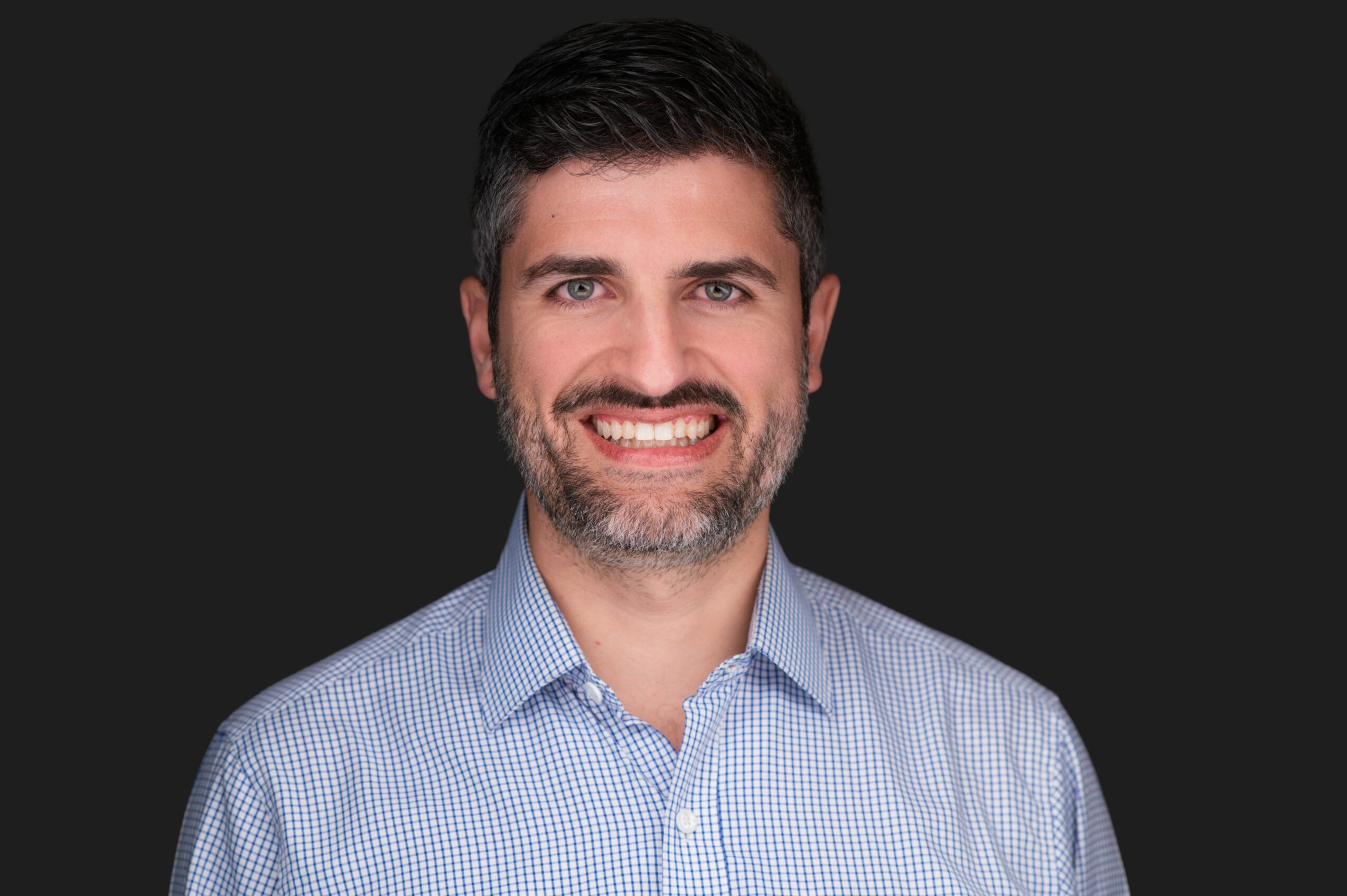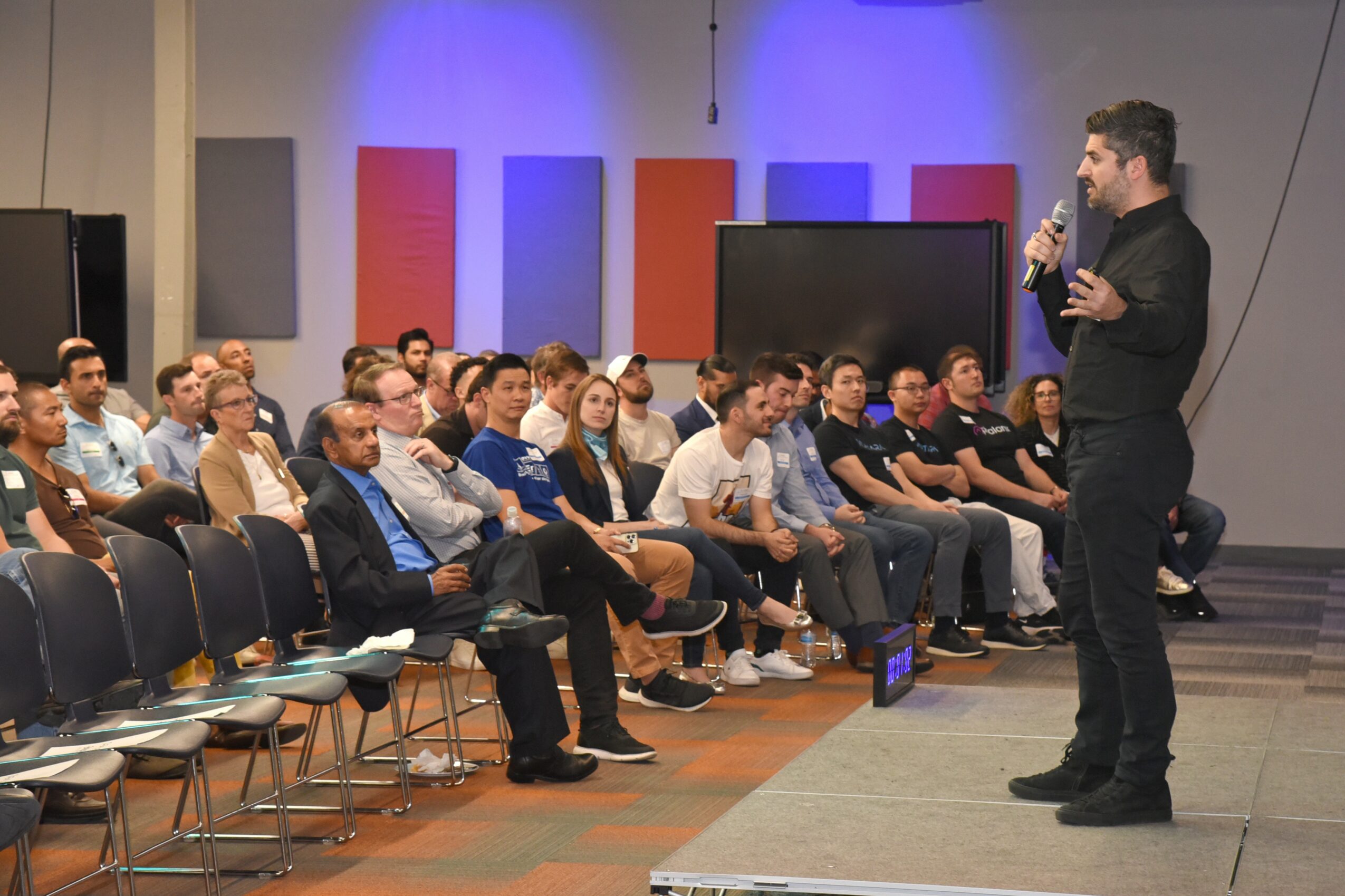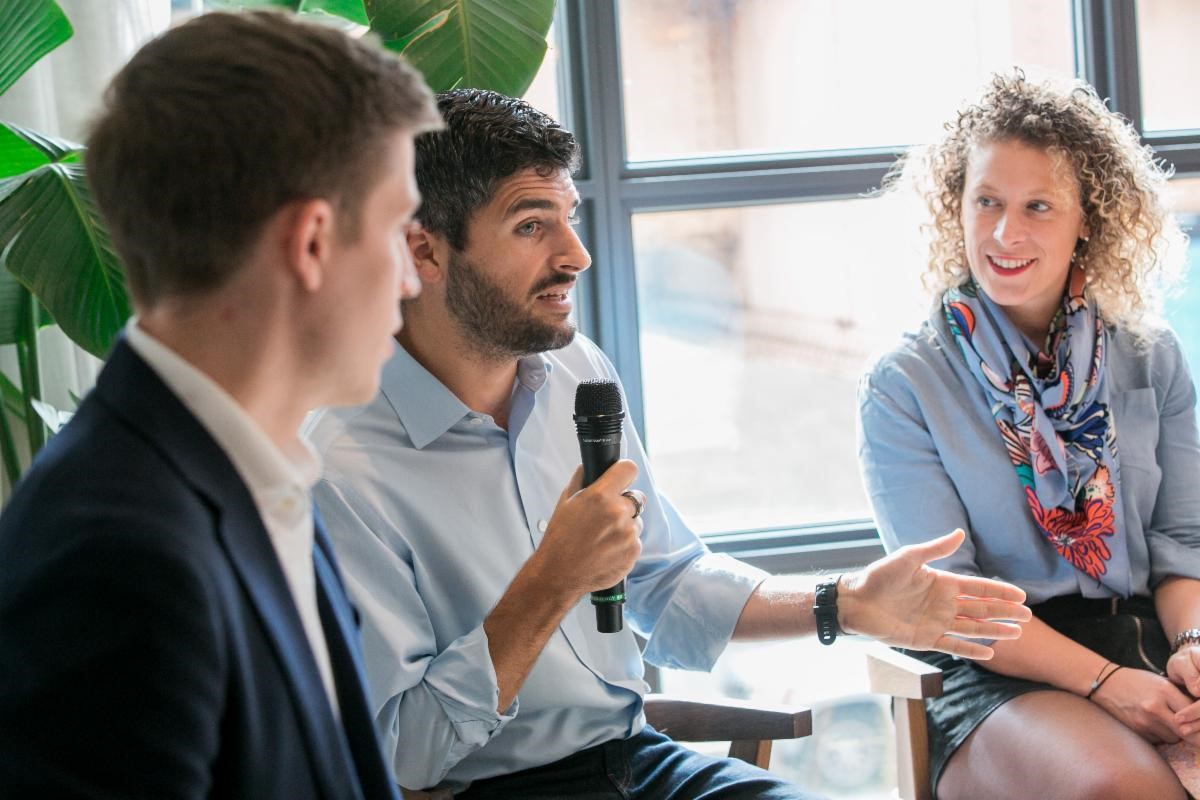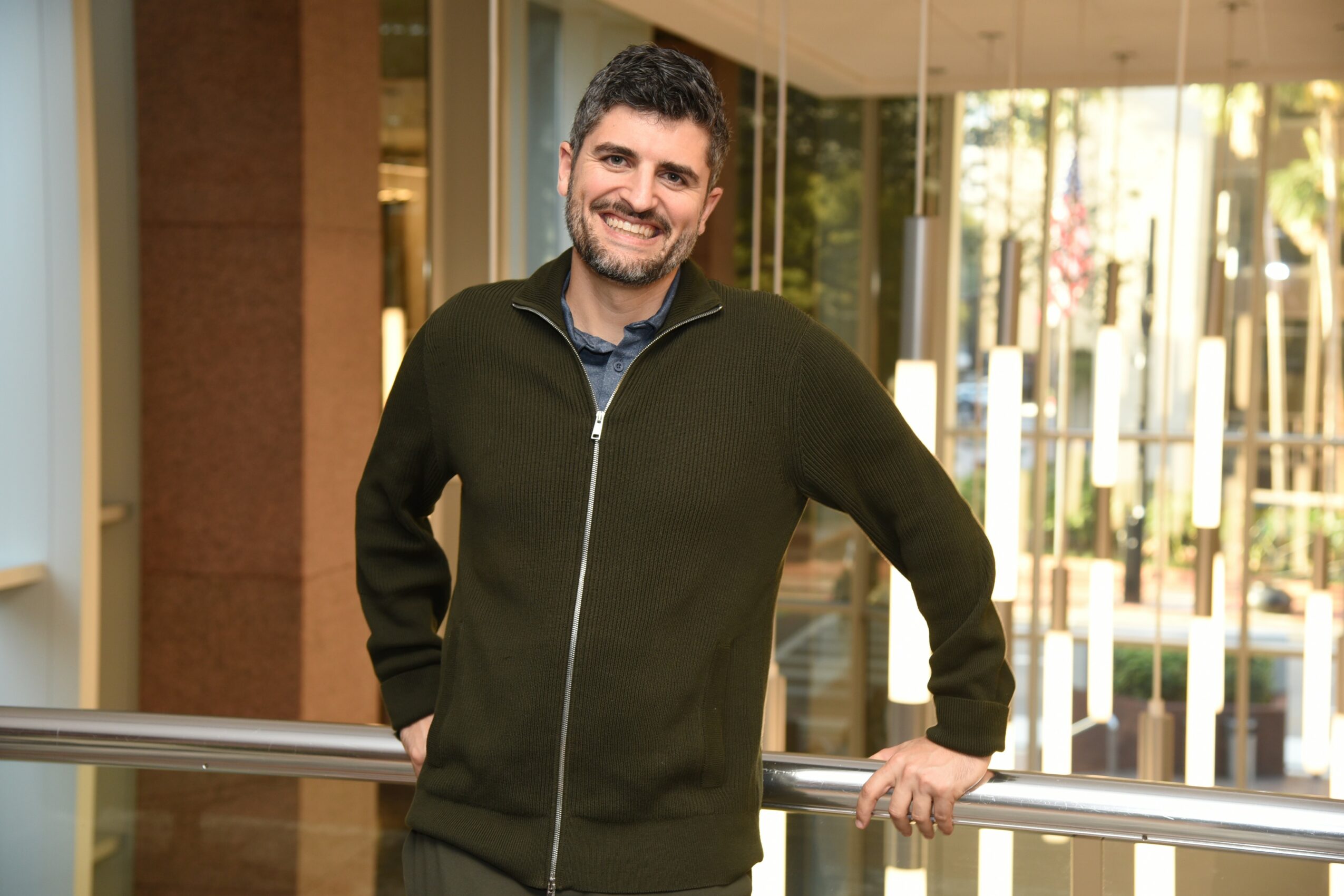

We recently had the chance to connect with Shaun Gordon and have shared our conversation below.
Shaun, so good to connect and we’re excited to share your story and insights with our audience. There’s a ton to learn from your story, but let’s start with a warm up before we get into the heart of the interview. Have you ever been glad you didn’t act fast?
Years ago, in NYC, I walked past a white van on the street on my way home. The van blocked the oncoming traffic’s view of the crosswalk, but I didn’t think too much of it. When the walk signal lit up on the other side of the street, I looked both ways and stepped into the crosswalk. Then my spidey senses went off. I saw a flash of yellow and jumped in the air.
The cab hit me, and I ended up flying about twenty feet down the street. It felt more like one hundred feet. Luckily, the quick jump saved me from needing a horrific knee operation (or worse, I guess).
When I gathered myself and looked up from the asphalt, I saw the driver hulking over me. He started screaming about why I was there. Stunned and confused, it took me a minute to put it all together.
A park ranger saw the whole thing from the other side of the street and yelled, “Call the police. That guy hit you!” Soon, the police, fire, and ambulance pulled up with flashing lights everywhere.
They really wanted me to go get checked out at the hospital, but I refused. I had some scrapes but avoided anything serious. Actually, I ended up finishing my walk home, grateful to be OK, and convinced I would wake up the next day like any other day. Maybe a bruise or two.
I think about it sometimes as it pertains to crisis. I certainly don’t have a perfect track record (nobody does), but I like to think I passed the headline test in that moment. It could’ve read something like, “Taxi driver loses lawsuit to Wall Street professional.” I’m grateful I slowed down and responded as opposed to reacting quickly in the moment.
More important than the headline in my mind, though, I didn’t want to put the driver through a potentially devastating lawsuit if I pressed charges and pursued a lucrative settlement. He probably had a family relying on that job. Sure, I got hit by a car, but it could’ve been a much worse day for him and the other people in his life. It wasn’t a great day for either of us, but slowing down in that chaotic moment meant it ended better than it could’ve if I had reacted instead of responded. So I’m glad I slowed down.
Can you briefly introduce yourself and share what makes you or your brand unique?
I’m the founder and managing partner of Astria Elevate. We invest in family/founder led businesses with a focus on operational excellence. We leverage our experience both as investors and operators, to acquire businesses and help them grow. My personal journey has led to a foundational belief that companies have value beyond the spreadsheet.
Many people think private equity investors show up and indiscriminately reduce headcount purely to increase profits after they make an acquisition. We don’t do that at all. We have a strong preference to keep existing leadership in place and help them improve. Working with families and founders means we get to help them discover growth opportunities , design compensation plans to motivate and align employees with the company’s success, look at business performance in new ways, sharpen operations, and explore thoughtful mergers and acquisitions.
Okay, so here’s a deep one: Who saw you clearly before you could see yourself?
I’ve had so many people who believed in me, especially early in college and when I worked as an intern. More than anything else, they provided me with the opportunity to be immersed in rich environments for learning and illuminated the way for me to teach myself. That’s so important because mentors provide essential guidance, but the mentee also has to put in the work.
I had a few key mentors who taught me powerful lessons. One of them suggested I should identify a few heroes who have the leadership styles I admire and may want to emulate, then create a composite of them and add myself into it to make it my own. That part, making it my own, took time. At first, I defined success as I saw it in the people who inspired me. Figuring out that my own success could (and had to, actually) look different became a turning point for me because things felt more natural once I did.
Also, I am grateful to have had some masterful female mentors. Learning how an accomplished female handled leadership challenges that I faced myself showed me nuances I didn’t get from the (mostly) male perspectives I had gotten up to that point. Hearing her perspective gave me more depth. It was truly transformative, and I’m fortunate and grateful for those relationships.
What’s something you changed your mind about after failing hard?
I believe in the strength in networks, and I genuinely like to help people I engage with. But I’ve learned about the importance of friction and direct feedback. I used to hold back negative comments out of politeness.
I went through two major failures in the last decade, and both came back to one lesson. I realized I need to shrink the timeline for progress checks, hold people accountable, and drive more urgency for the things I think are urgent. Those experiences amplified what some people may consider obvious. My approach, work ethic, and values are the same as everyone around me.
The business will suffer if I let too much time elapse before I find an equilibrium between my expectations and the realities of who’s doing what in the business. The business suffers the longer I take to figure it out. I used to avoid those conversations out of a fear I was crossing some type of line.
But I realized I don’t do the team any favors by keeping notes to myself. I think it’s important to deliver direct feedback, and I’ve worked hard to improve how I deliver it. I usually get a thanks down the road because it ends up helping more than the discomfort of hearing it in the moment.
Alright, so if you are open to it, let’s explore some philosophical questions that touch on your values and worldview. How do you differentiate between fads and real foundational shifts?
Differentiating between fads and foundational shifts is tricky because it’s not usually *what* the thing is. It’s *when* you catch it in the evolution from fad to foundational. In some ways, every foundational shift started as a fad. Sometimes you’ll see a spike in something, but you don’t know if the spike will last a day, week, year, or if it’s the new normal. Not every fad turns into a foundational shift.
Also, I do want to say that I’m OK jumping on a fad. I push myself to lean into things earlier for two reasons. First, I often learn more from being an innovator or early adopter then when I fall into the late majority. Second, innovators and early adopters tend to be the most interesting (and profitable). It’s especially true when something makes it from fad to foundational, but it’s hard to overstate how much bigger the returns are for the early two groups than the later ones.
Being early to spot a foundational shift is key. Everett Rogers’s “Diffusion of Innovation” is super relevant here. 2.5% of people fall into the innovator category and are the first to spot the trend. That’s a pretty small percentage and when you can be one of those people to see something early, that’s amazing(!) and also really, really, really hard.
How do I spot them? When I have spotted major shifts in the past, it’s typically from market signals like when a major, independent, and discerning stakeholder with gravitas embraces it “as the next big thing.” An even stronger signal is when an ecosystem starts to develop around “the fad”. In those circumstances, fads are more likely to become foundational.
Before we go, we’d love to hear your thoughts on some longer-run, legacy type questions. When have you had to bet the company?
Well, every time you start a company, you bet your livelihood. You also bet whatever else you could be doing, so starting is a big bet in and of itself.
But one instance does come to mind. A company I ran faced insolvency and had a lender ready to pull the plug. My advisors told me to move on. The investors (and me, by the way) wouldn’t get our equity back. That was immutable. Many investors might reckon, “Sometimes you win and sometimes you lose.”
The team working on the business every day, though, faced much worse. Their jobs meant everything to them and their families. I wanted to save the company and protect them. Personally, I also wanted the opportunity to navigate a turnaround. It took a team effort to gain the confidence of the lender (who became the owner), gather the best talent, create a new strategy, and steer through the storm.
Fortunately, we did it. We saved the jobs, turned the business around, and I learned a ton in the process. Now, I still wish I could go back and avoid the situation to begin with, but I’m grateful for the mentors who helped me through it and the people who worked tirelessly to turn things around.
Contact Info:
- Website: https://shaunrgordon.com/
- Linkedin: https://www.linkedin.com/in/shaunrgordon/
- Other: https://shaunrgordon.substack.com/













